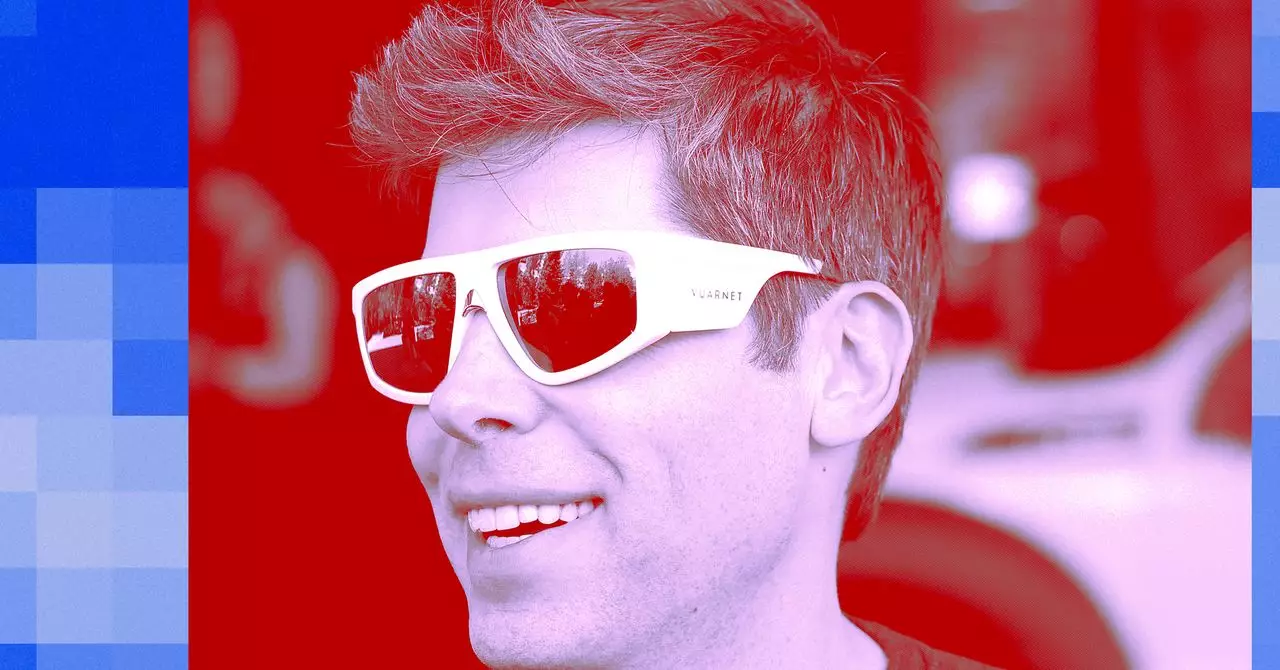In an era where technological innovation shapes the trajectory of civilization, few agreements hold as much clandestine influence as “The Clause” embedded within the Microsoft-OpenAI alliance. Originally revealed in a candid interview with Microsoft CEO Satya Nadella, The Clause encapsulates a pivotal understanding of how AI’s future might be dictated by corporate interests and legal intricacies. Despite its seemingly mundane legal language, this contract carries the weight of humanity’s potential future—determining whether we share in the benefits or face the consequences of an Artificial General Intelligence (AGI) that surpasses human capability.
Nadella’s cryptic remark about “getting to superintelligence” reveals an underlying acknowledgment of the existential stakes involved. While on the surface, corporate strategists pursue market dominance and profit margins, the true game is far more profound. The Clause doesn’t just govern a business deal; it internalizes the future of human intelligence, innovation, and control. Its existence highlights a core truth: in the race to develop powerful AI, there are limits—yet those limits pivot on fuzzy, often vague standards that could be reinterpreted or contested at critical junctures.
Decoding the Contract’s Hidden Mechanics
While the exact legal language isn’t publicly accessible, credible sources outline the core structure of The Clause, revealing a delicate balance of conditions that could reshape AI development. At its heart are two threshold determinations: the achievement of AGI and the generation of “sufficient profit” to justify continued access.
The first condition hinges on whether OpenAI declares that its latest models have achieved AGI—defined as a system surpassing human abilities in most economically significant tasks. This is inherently subjective, wrapped in ambiguity deliberately designed to give OpenAI substantial discretion. Nadella’s concern is justified: what happens if OpenAI labels its own creation as AGI prematurely? The company’s board has ultimate say, and their judgment might be influenced by strategic, financial, or ideological motives. Without definitive scientific metrics, this decision becomes a battleground for scientific validity versus corporate interests.
The second condition is even more complex—judging whether the new AI models can generate enough profit, over $100 billion, to be considered “sufficient” for the investors involved. The language here isn’t about actual profits but rather credible forecasts backed by evidence. If achieved, this triggers an extraordinary clause: OpenAI can deny Microsoft access to the latest models, leaving Microsoft with outdated versions and no participation in the breakthroughs that could redefine technological warfare and economic power.
This setup creates a tug-of-war, with OpenAI wielding significant leverage, potentially rewriting the rules of AI development. When combined, these conditions ignite fears of a clandestine zero-sum game where technological dominance is bought, sold, and ultimately controlled by the company deemed the ultimate arbiter of AGI’s realization.
Implications of the Clause: Power, Control, and Humanity’s Future
The deeper implications of The Clause extend beyond corporate borders into the realm of societal influence and ethical uncertainty. As AI progresses toward AGI, the ambiguity baked into the contract raises fundamental questions: Who gets to decide when AI is “superintelligent”? Who will hold the reins of this unprecedented power?
If OpenAI achieves Sufficient AGI and claims the profit threshold, the potential for a corporate-exclusive hold on the most advanced AI models becomes a terrifying possibility. Such a scenario would mean that a small constellation of private investors and technologists could monopolize a technology that arguably has no precedent in history—one capable of reshaping industries, geopolitical dynamics, and even social fabric itself.
Control over AGI, as dictated by The Clause, becomes a strategic weapon. Will OpenAI, driven by profit motives, prioritize shareholder gains over societal benefit? And if they declare the attainment of AGI prematurely, could they trigger a race that leaves the world unprepared for the consequences? These are not hypothetical questions—they are underpinned by the fragile, easily manipulable clauses embedded in a treaty that has yet to face rigorous public scrutiny.
Furthermore, the ongoing renegotiation of The Clause underscores the high stakes involved. Microsoft, as a significant player, grapples with the reality that its future technological dominance might hinge on a contract that is, at its core, uncertain and potentially fluid. The tension between corporate interests and societal needs is at the boiling point, and The Clause serves as a mirror reflecting broader fears about the concentration of AI power.
The Ethical Dilemma: Profit, Control, and Humanity’s Destiny
In essence, The Clause is emblematic of a broader dilemma facing our civilization: should the development of potentially world-changing AI be solely governed by market incentives and corporate safeguards? Or should it be a moral and societal priority to define clear, transparent standards that prevent the monopolization of such potent technology?
The fact that significant parts of this contract remain shrouded in secrecy fuels skepticism and alarm. When industry leaders talk about superintelligence with almost cavalier dismissiveness, it reveals a dangerous complacency about the profound impact these developments could have. The risk isn’t just technical failure or unintended consequences; it’s the possibility that economic interests will determine when and how humanity encounters the epoch-defining arrival of AGI.
Moreover, The Clause exposes a critical flaw in current approaches to AI governance. It is, at best, a fragile legal scaffold vulnerable to reinterpretation and manipulation. Without rigorous oversight, an

